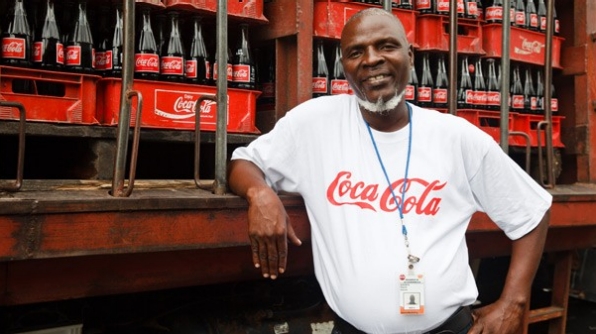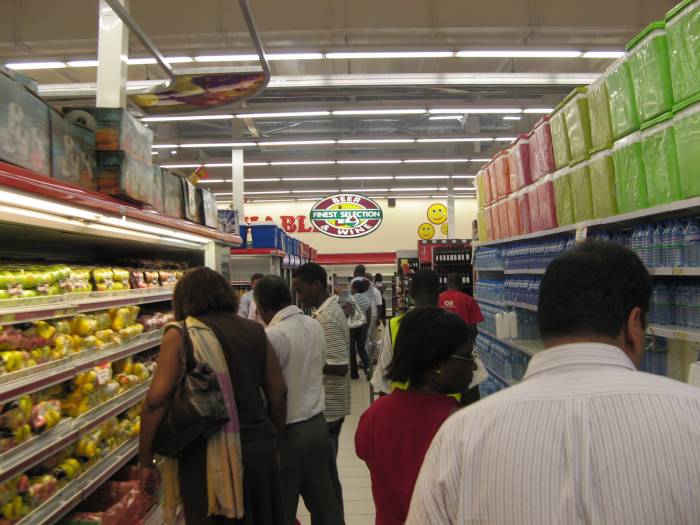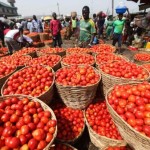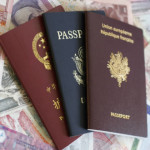
source
South Africa is one of the most obese countries in Africa with about two-thirds of the population classified as overweight and more than a fourth considered obese. To combat the issue, the government is proposing a tax on sugary drinks like soda and sweetened juice. The so-called “sugar tax” or “fat tax” is intended to help curb consumers’ unhealthy habits and help with the economic burdens obesity causes.
An effort to cut obesity
The tax was proposed after the Department of Health published a report on how sugar relates to obesity in December. A regular 12-ounce can of Coke has 39 grams of total sugar, which is more than nine teaspoons of sugar. This exceeds the daily recommended allowance for sugar for both men and women. A few countries, like Britain and Mexico have begun taxing these sugary drinks in an effort to cut down on obesity. The Department of Health report states that South African authorities intend to reduce obesity by 10% in the next four years; this tax is one of the government’s efforts. Obesity is becoming a crisis in the nation. South Africa is not only one of the most obese countries in Africa, but it is also the third most obese nation in the world. Obesity puts people at a higher risk for being diagnosed with diseases such as diabetes or high blood pressure. Dealing with all of these obesity-related diseases puts a considerable strain on the nation’s health care system, which is another motivation behind the tax. “
“People need to realize that there are more people dying from obesity (related illnesses) than from any other disease in the world,” said endocrinologist Professor Tess van der Merwe.

Consumers are unlikely to change their behavior
Despite the introduction of this tax, South African consumers are unlikely to decrease their sugar consumption. 30-year-old Thulani Masango from Zandspruit said that consumers are fully aware of the dangers of sugar.
“We know sugar causes diabetes and obesity,” he said. “But…we cannot survive without sugar.”
He pointed out that price increases on other products have not affected them.
“As we speak, the price of meat has gone up, but we continue braaing (barbecuing). Alcohol goes up almost every year, we still drink. It’s the same with sugar. It’s something that is uncontrollable.”
53-year-old Anastacia Tshabalala, who is a supervisor for a supermarket in Zandspruit, had a similar opinion.
“Sugar is sugar! We are going to take it no matter what. Even if the price goes up, we have to take sugar everyday — you can’t live without it,” she said.
And fellow consumer Fabian Ridly agreed.
“I don’t think people will buy less because if someone really likes something someone will buy something that person likes, so I don’t think it’s a good idea to increase the prices.”

Manufacturers warn that it could cause job losses
The manufacturers behind sugary drinks are even more upset at this tax than the consumers.
“For the treasury to announce a tax on only one category of foods is discriminatory,” executive director of the Beverage Association of South Africa, Mapule Ncanywa, said. “We don’t think that it’s going to have the desired result of reducing excessive intake of sugar, let alone obesity for that matter.”
Ncanywa added that the tax could negatively impact the economy.
“There definitely will be job losses and certainly the small business owners are going to be extremely impacted,” he said.

Even health experts are critical
Minister Gordhan has not announced what rate sugary drinks will be taxed at. But, according to a Plos-One study published, a 20% rate will only reduce obesity by 2.4% for females and 3.8% males. Even health experts, like van der Merwe, are skeptical of how helpful the tax will be.
“These are epidemic proportions,” she said. “I don’t believe that it will curb the epidemic unless we have a definitive preventative and treatment strategy in place — like tax didn’t curb alcohol use.”

[interaction id=”57152a471de2251249f045f1″]
SEE ALSO: Africa Is Turning Into A Promising Market For Fast-Food Chains.







